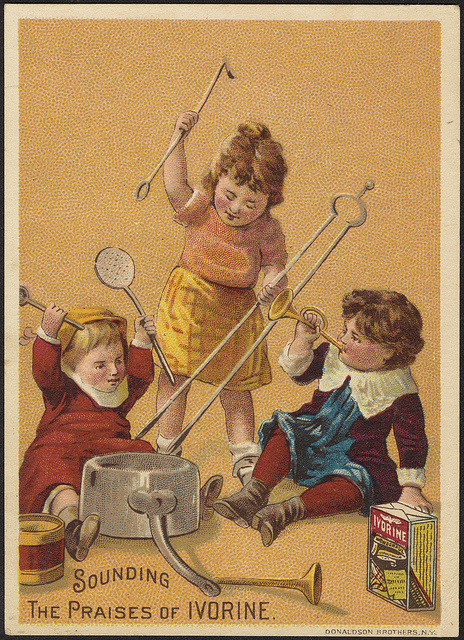Can Mom’s Pots and Pans Really Help a Baby’s Success?


Music can play an important role in your infant’s growth and development throughout the early stages of their life. From lullabies and singing nursery rhymes to banging on pots and pans and using educational tools that promote music, you’ll find that the various melodies can enhance the way your child processes their skills.

Singing nursery rhymes, lullabies and other songs can be crucial to your child’s development. It’s a way for them to associate the oral movements of your face and vocal chords with the sounds that are emitted through your voice. This is crucial to how a child communicates, the way they learn the various sounds and how to control their own emotions. Whether you sing live or listen to music via the radio, T.V., you’ll find it to promote imitation and keep your infant entertained and happy.
As your child matures, they can learn how to transition from one activity to the next with music. A song that teaches your small toddler to clean up their room before they eat lunch can encourage them to clean up their mess in a fun and melodious method of entertainment.
Musical prodigies such as Mozart, Brenda Lee and Michael Jackson all learned music and had the fortune to debut their talents before the age of 12. Whether the music was introduced by a parent, grandparent, friend or sibling, this early introduction allowed them to pick up the notes and form a passion early on in their childhood. Because they fostered their talents early on, they were able to exceed normal levels of education. It also allowed them better success in learning as they reached adulthood.
Today’s activities and tools can foster musical interest and development in infants and toddlers. Whether you teach your child nursery rhymes, play classical music before they are even born or give them the creativity to make music out of something as simple as pots, pans and wooden spoons, you’ll find that music is teaching your child an assortment of skills that are necessary in their childhood development.
A music activity table that is designed for an infant can also allow your baby to discover melodies in an atmosphere that was designed exclusively for them. With a light up piano, drum station and guitar, your child can experience an introduction to music in a way that will entertain and educate them. As they grow, you can incorporate various instruments and songs into the mix.
Your child can comprehend patterns of music before understanding words. It’s a way for them to begin practicing the exercise in listening and anticipating what follows the notes. This is imperative when they begin to talk and communicate. The sensory stimulation in music can also enhance their brain development.
The early stages of birth can enhance a child’s communication and developmental skills when they’re introduced to music. Parents can encourage this with simple activities such as playing music to a child while in the womb, singing silly songs and making music with every day kitchen utensils.
Jennifer Alston is a mother of two herself, and though she found this research prior to conception of her children, still finds that music helps aid in the growing process. Baby Einstein by Kids II has such a variety of new technology and musical toys for children, she plans to purchase gifts from them for her nieces and nephews who have just entered this world.
Photo Credit: http://www.flickr.com/photos/boston_public_library/8230713334/
